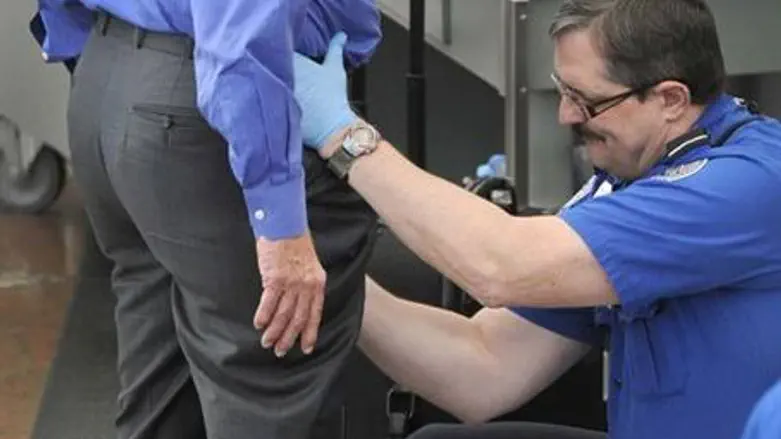
U.S. officials warn that Al Qaeda terrorists in Yemen are eyeing surgically implanted explosive devices as the latest in suicide-bomber chic in order to blow up airliners, the Wall Street Journal reported Wednesday.
The report on the latest terror techniques by Al Qaeda in the Arabian Peninsula (AQAP) -- the group's most aggressive and dangerous franchise – may sound like the nefarious scheme of a deranged comic book villain, but U.S. officials are taking it very seriously.
"It's more than aspirational," a U.S. official said. "They're trying to make this happen."
U.S. officials have warned foreign governments and American and international airline executives that terrorists might attempt to board planes with explosives concealed in their bodies.
The prospect of terrorists carrying bombs within them — perhaps stitched into the abdomen, breasts or buttocks — has prompted additional security measures at U.S. airports and overseas airports serving U.S. destinations.
"Passengers flying from international locations to U.S. destinations may notice additional security measures in place, including more interactions between security agents and passengers," TSA spokesman Nick Kimball said.
Many U.S. airline passengers have been complaining the TSA hasn't been intelligently screening passengers for years and complain security measures have already become aberrant and invasive in many airports. How commuters will react to increased security that may target sensitive areas of their bodies remains to be seen.
Intelligence officials say militants had repeatedly expressed interest in experimenting with new techniques to conceal explosives.
"That terrorists are interested in finding ways to attack us is pretty much self-evident," one official said. "Our security procedures are multifaceted, and we adjust them according to the threat all the time."
Security officials believe, in theory, a surgically implanted bomb could work. A small amount of explosives could be sealed in plastic and introduced into the body. To detonate the explosive, a syringe containing a different chemical could be jammed into the plastic bag, triggering the blast. Diabetics and others with certain medical conditions can carry syringes onto aircraft.
Al Qaeda militants have gone so far as to discuss which anatomical regions would be preferable for an explosive implant, a U.S. counter terrorism official said, although the official declined to specify which region they recommended.
In recent years, the TSA has added hundreds of new full-body screening machines at scores of airports to complement metal detectors and help detect hard-to-find items that could pose a security threat. The new scanners, however, likely wouldn't be able to identify explosive devices implanted inside a body.
That has prompted many security experts concerned about the over-reliance on technology by U.S. security officials to urge alternative security measures, including the impolitic but effective method of profiling a passenger's behavior and demeanor to identify security risks.
"What technology can we use? The simple answer is the human brain—that's the only way to address the threat," said Philip Baum, founder of Green Light Limited, a U.K. aviation-security consultancy.